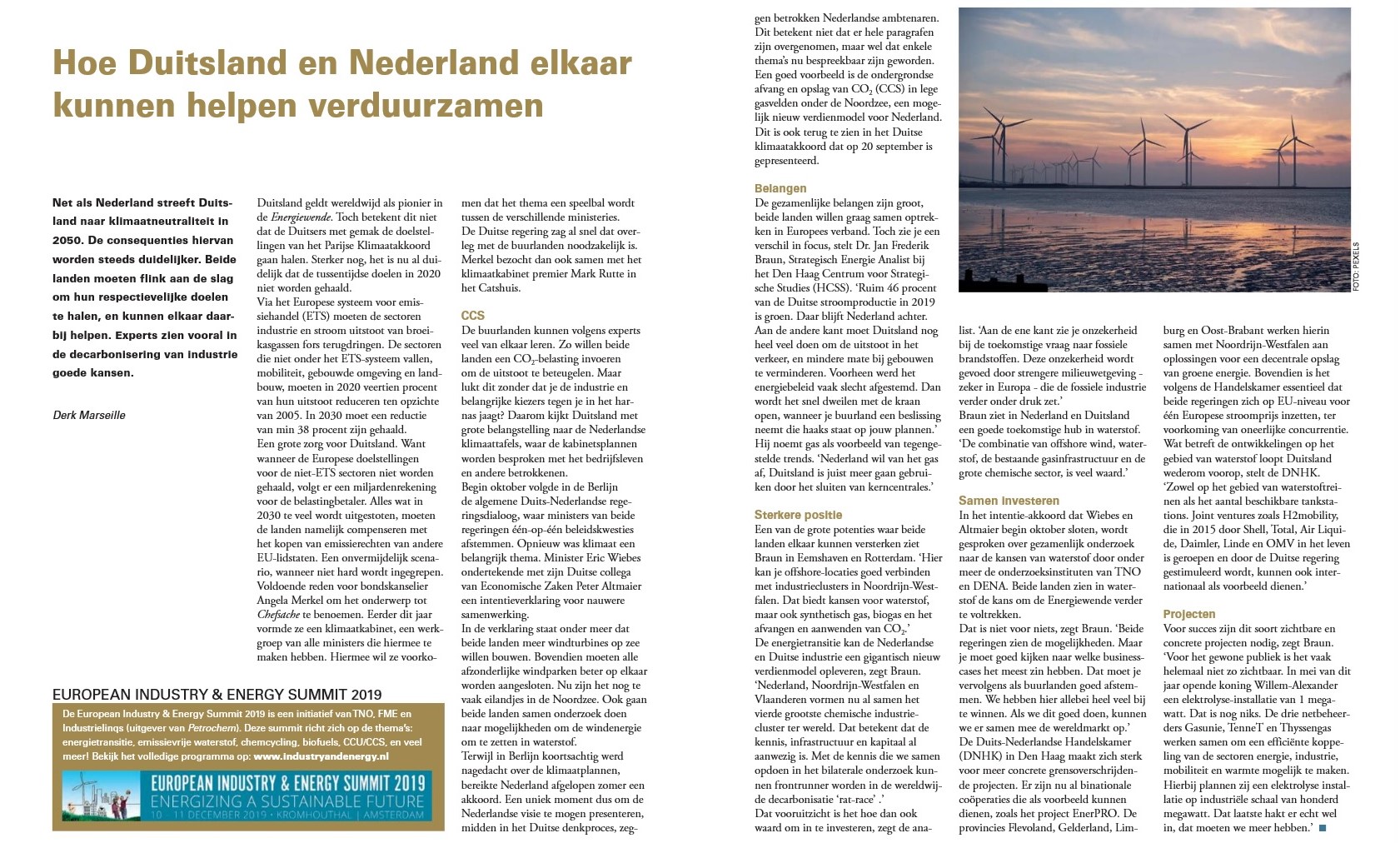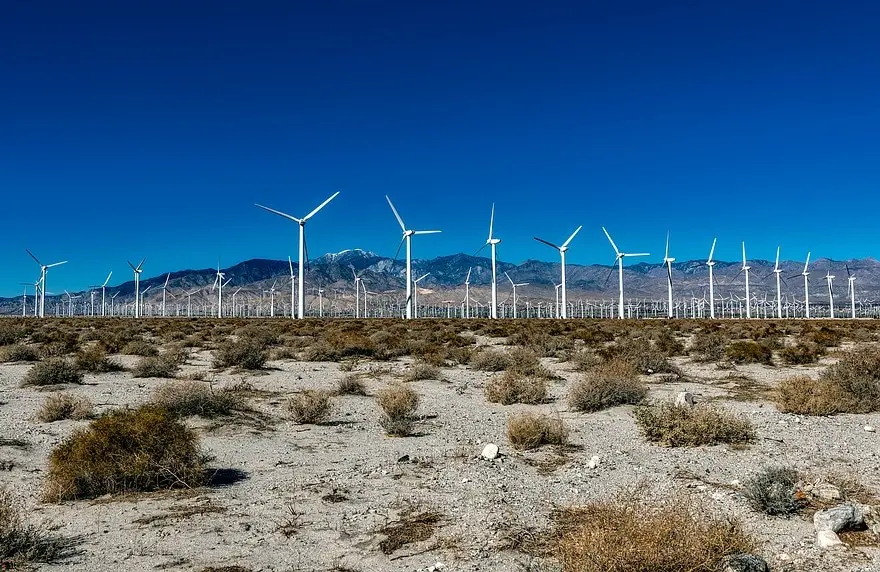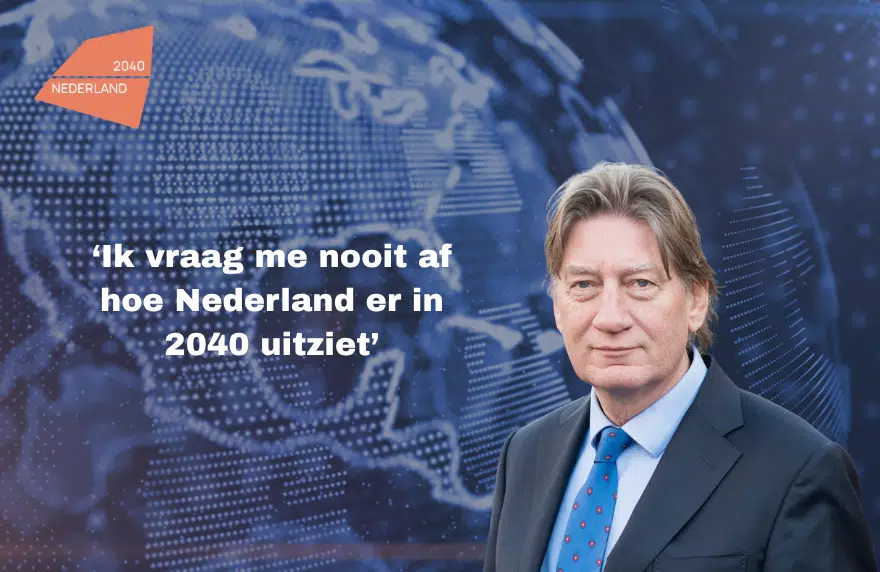Net als Nederland streeft Duitsland naar klimaatneutraliteit in 2050. De consequenties hiervan worden steeds duidelijker. Beide landen moeten flink aan de slag om hun respectievelijke doelen te halen, en kunnen elkaar daarbij helpen. De gezamenlijke belangen zijn groot, beide landen willen graag samen optrekken in Europees verband. Toch zie je een verschil in focus, stelt Dr. Jan Frederik Braun, Strategisch Energie Analist bij het Den Haag Centrum voor Strategische Studies (HCSS), in Petrochem, managementblad voor de olie- en chemische industrie in de Rijn/Schelde-delta.
“Ruim 46% van de Duitse stroomproductie in 2019 is groen. Daar blijft Nederland achter. Aan de andere kant moet Duitsland nog heel veel doen om de uitstoot in het verkeer, en mindere mate bij gebouwen te verminderen.”
“Voorheen werd het energiebeleid vaak slecht afgestemd. Dan wordt het snel dweilen met de kraan open, wanneer je buurland een beslissing neemt die haaks staat op jouw plannen.” Hij noemt gas als voorbeeld van tegengestelde trends. “Nederland wil van het gas af, Duitsland is juist meer gaan gebruiken door het sluiten van kerncentrales.”
Het is eigenlijk frappant dat Nederland en Duitsland hun energietransities weinig met elkaar afstemden, vindt Braun. “We zijn economisch zo met elkaar verstrengeld. Als Duitsland iets wil, dan heeft dat meteen gevolgen voor ons.”
Het kan de Nederlandse en Duitse industrie een gigantisch nieuw verdienmodel opleveren, zegt Braun. “Nederland, Noordrijn-Westfalen en Vlaanderen vormen nu al samen het vierde grootste chemische industriecluster ter wereld. Dat betekent dat de kennis, infrastructuur en kapitaal al aanwezig is. Met de kennis die we samen opdoen in het bilaterale onderzoek kunnen frontrunner worden in de wereldwijde decarbonisatie ‘rat-race’ .”
Lees het hele artikel via deze link op pagina 18/19.






